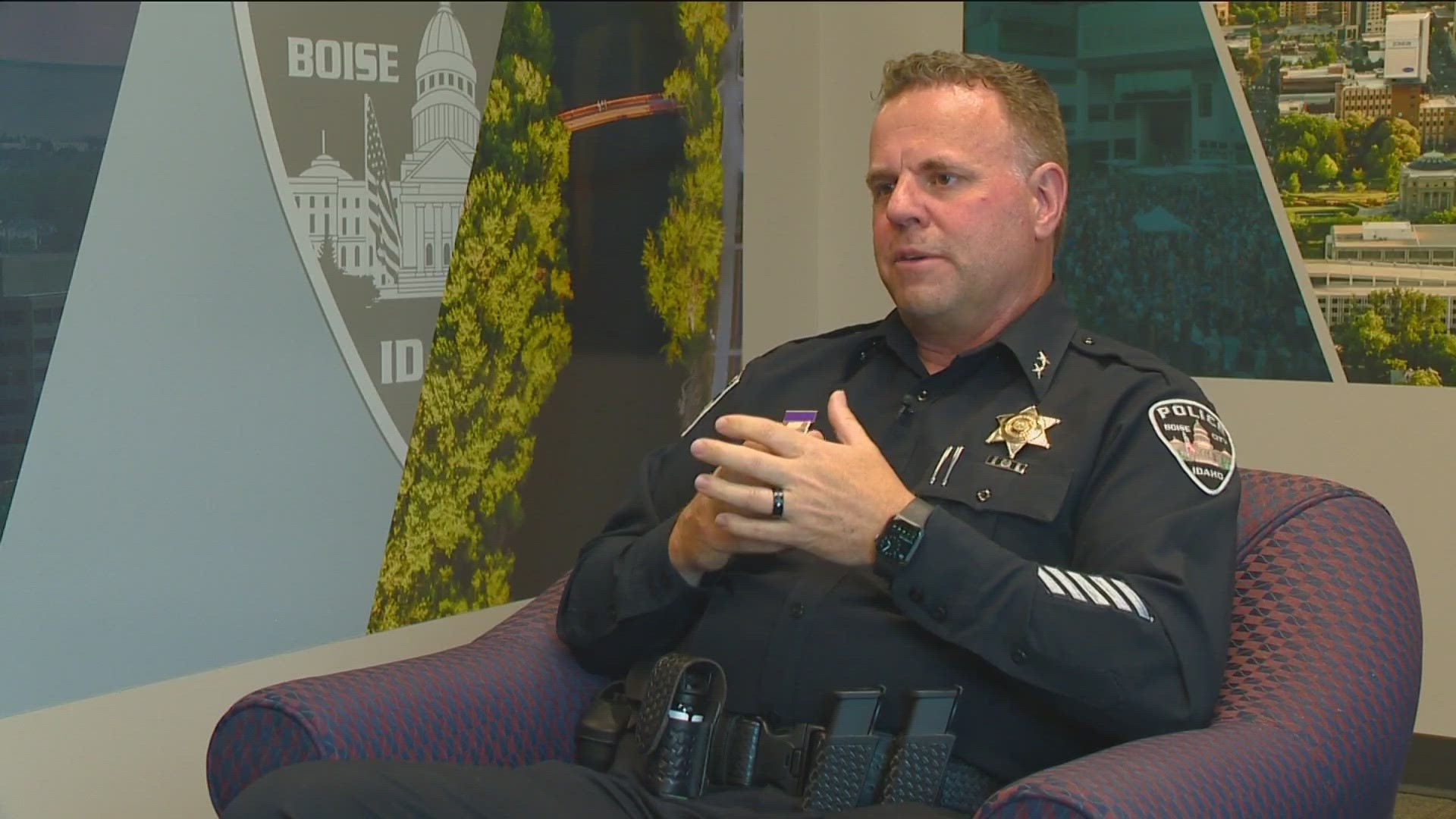BOISE, Idaho — More than one week after a Washington D.C. law firm found no evidence of widespread racism in his department, Boise Police Chief Ron Winegar continues reviewing various recommendations made by the investigation's lead attorney.
The investigation started in November after retired captain Matt Bryngelson posted racist and discriminatory views online. To Winegar's relief, Michael Bromwich – who presented the findings – said they did not believe Bryngelson "infected" the rest of the department with his beliefs.
"I was grateful that what I felt all along in my heart of hearts was that we did not have a problem with widespread racism within the agency," Winegar said. "It was nice to be able to have that confirmed by someone."
While Bromwich did not find racism to be a prevailing issue within the department, he made other recommendations about how Boise Police hires and raises people through the ranks.
He said Bryngelson had a "long list of internal affair complaints" and likely should not have been promoted through the ranks. Based on interviews, coworkers found him "rude, lazy and unavailable."
Winegar did not comment specifically on Bryngelson's previous positions within the department but said promotions are a lengthy and complicated process.
"We are constantly and as a result of these recommendations, certainly looking at our promotional processes," Winegar said.
During last week's presentation, Bromwich also alleged Bryngelson played into a "club-like" culture where everyone succeeds, even if there are concerns about a person's qualifications and attitude.
Winegar said it is not so much about covering for bad behavior but raising the expectations within the department. He believes any "club-like" culture is not acceptable and that creating the right atmosphere starts from the top.
"We tremendously understand the need for a relationship and trust," Winegar said. "We can't have that if officers or members of our agency are doing things that are not appropriate."
Another point Bromwich brought up was BPD's academy. He said in the last decade, no recruit has ever failed out of the program. That is at odds with the national average flunk-out rate of 10-15%.
Despite those allegations, Winegar said it is a bit more complicated. Boise Police actually does let people go, but not usually during academy sessions.
He said about 12% of the people BPD hires are no longer employed by the time they reach the end of their probationary status (the first year or so of employment).
"The academy is fairly academic," Winegar said. "So, if I would say personally, if you are firing 25% of the people out of your academy, you probably have a hiring problem more than a standards problem."
Bromwich also highlighted staffing shortages, stating Boise Police should be selective in filling spots. Winegar said they already are and that they have actually "beefed up" hiring standards over the years.
These are all preliminary findings. Because the city ran out of money, Bromwich said his team did not have time to review the 105,000 documents relating to the investigation.
Due to those reasons, Bromwich viewed the results with "very low confidence." Despite that, Winegar said the investigation raised some important questions.
Winegar asked, "are there things we need to tweak or improve upon so that we don't have a repeat of the situation that we find ourselves in today?"
Those are the answer Winegar said they are still trying to find.
Watch more Local News:
See the latest news from around the Treasure Valley and the Gem State in our YouTube playlist:

